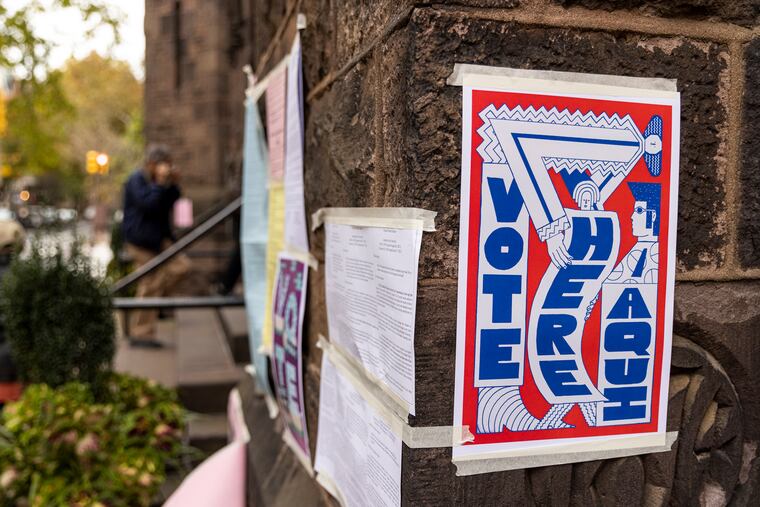Philadelphia ballot questions: How to vote on two City Charter amendments | Endorsement
The Inquirer Editorial Board recommends a yes vote on each question.

Besides the races for Pennsylvania governor and a U.S. Senate seat, Philadelphia voters are also being asked to consider two ballot questions in the Nov. 8 general election. Here’s how The Inquirer Editorial Board recommends that you vote:
Question 1: Yes
Should The Philadelphia Home Rule Charter be amended to create the Department of Aviation and to transfer certain functions related to operations of City airports from the other City agencies to the Department of Aviation?
The first question would allow the city to create a Department of Aviation, which would be separate from the Commerce Department, whose Division of Aviation currently handles these responsibilities. With two airports within city limits, this move makes sense. The division’s nearly $400 million operating budget is larger than most city departments, and deserves its own cabinet-level executive. Vote YES.
Question 2: Yes
Shall The Philadelphia Home Rule Charter be amended to provide for a preference in civil service examinations for qualified graduates of Career Technical Education programs in the School District of Philadelphia?
The second question relates to the city’s civil service regulations. While some city jobs are filled by direct appointment of the mayor or another city official, most roles are filled through the Civil Service Commission, which utilizes a series of tests and other qualifications to fill positions. All applicants are given a score that is supposed to represent their readiness for the job and only the top applicants may be hired. This charter change would grant preferences to graduates of the city’s career technical education programs, a move that would help these programs become a reliable route to city employment. Vote YES.
The frequency of these types of questions on the ballot leads this board to wonder: Does the city really need residents to weigh in every time a mayor wants to reorganize their cabinet, or City Council wants to tweak the city’s human resources regulations? Is the 70-year-old City Charter, designed by a very different Philadelphia before most of us were born, still offering the best possible form of local government?
After all, when the federal government creates a new department, there’s no constitutional amendment required, just an act of Congress. Federal civil service rules can be amended by executive order. Are these frequent referendums in Philadelphia, which overload our ballots and nearly always pass, really necessary?
We think it’s time to revisit the charter as a document, which would also allow a reexamination of the city’s multitude of row offices, which this board and local good-government groups have long called to abolish. The news that a deputy sheriff has been accused of selling the guns used in the Roxborough High School shooting is a painful reminder of the need to eliminate this position.
The charter also creates a mismatch between what our legislative body has control over — primarily land use and zoning — and what councilmembers are most passionate about, which is usually related to enforcement and quality-of-life issues. Often, it is this inability to direct departments which in turn leads to the proliferation of restrictive zoning rules, underlining the axiom that if all you have is a hammer, every problem looks like a nail.
There has been a subtle change in where power lies in local government. Although Philadelphia was designed as a “strong-mayor” system, these days it can feel more like a “strong-Council president” system. Mayor Jim Kenney’s signature initiative, Rebuild, is a $400 million program funded by the soda tax. Meanwhile Council President Darrell L. Clarke’s signature project, the Neighborhood Preservation Initiative, also costs $400 million and is funded by a 1% tax on construction. Did the charter intend for such parity between the jobs?
Given that the mayor is elected by hundreds of thousands of Philadelphians, and the Council president can be elected by as few as eight of their colleagues, this seems unlikely. If Philadelphia elected its Council president citywide, as Baltimore does, this level of power in the office might be appropriate, but given that the typical voter has no influence over who leads City Council, this level of balance between the positions seems misguided.
Like many ballot questions, both of the measures on the ballot this fall are uncontroversial and likely to pass easily, as they should. But the nonstop need to amend the charter should prompt a broader rethinking of city governance.